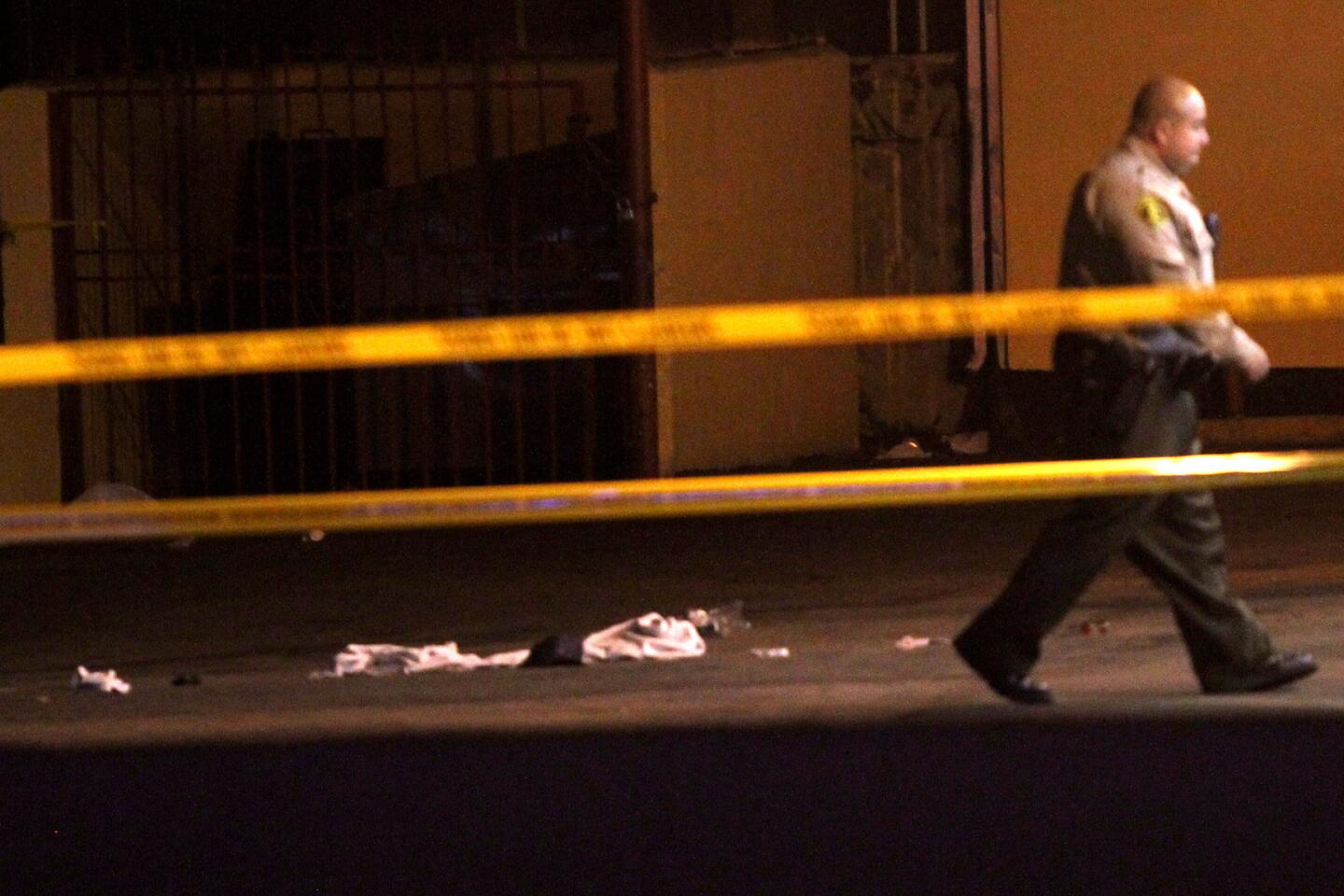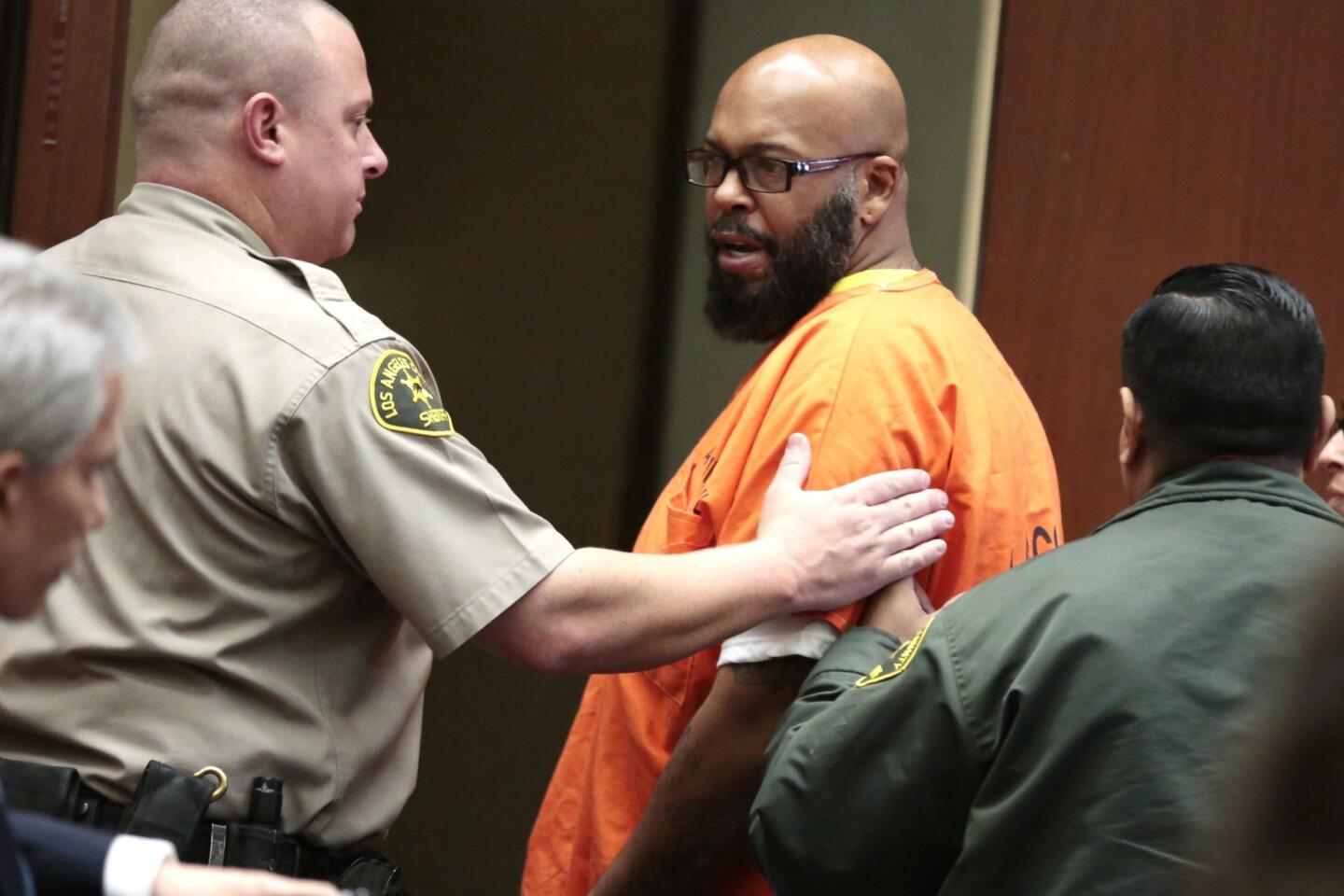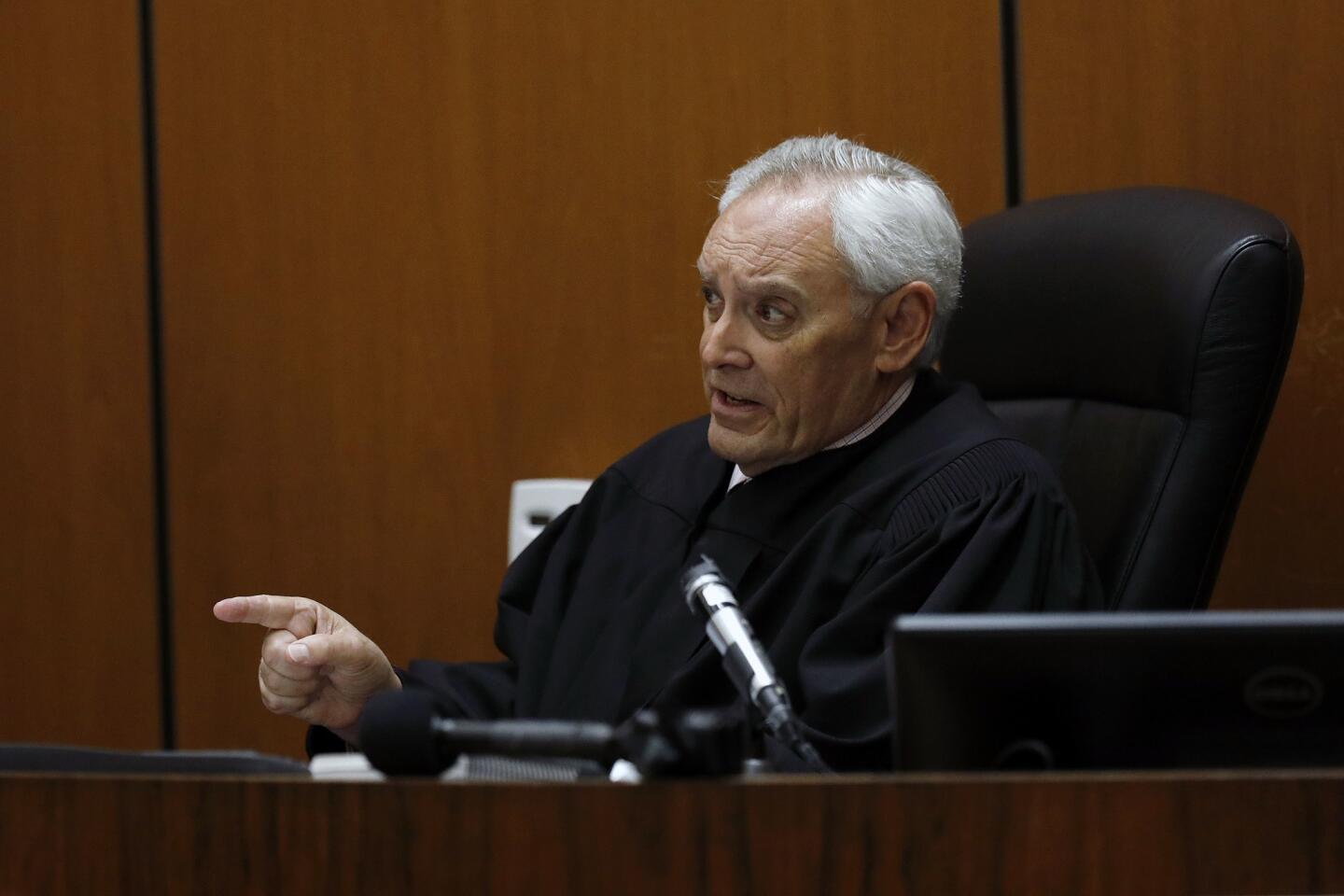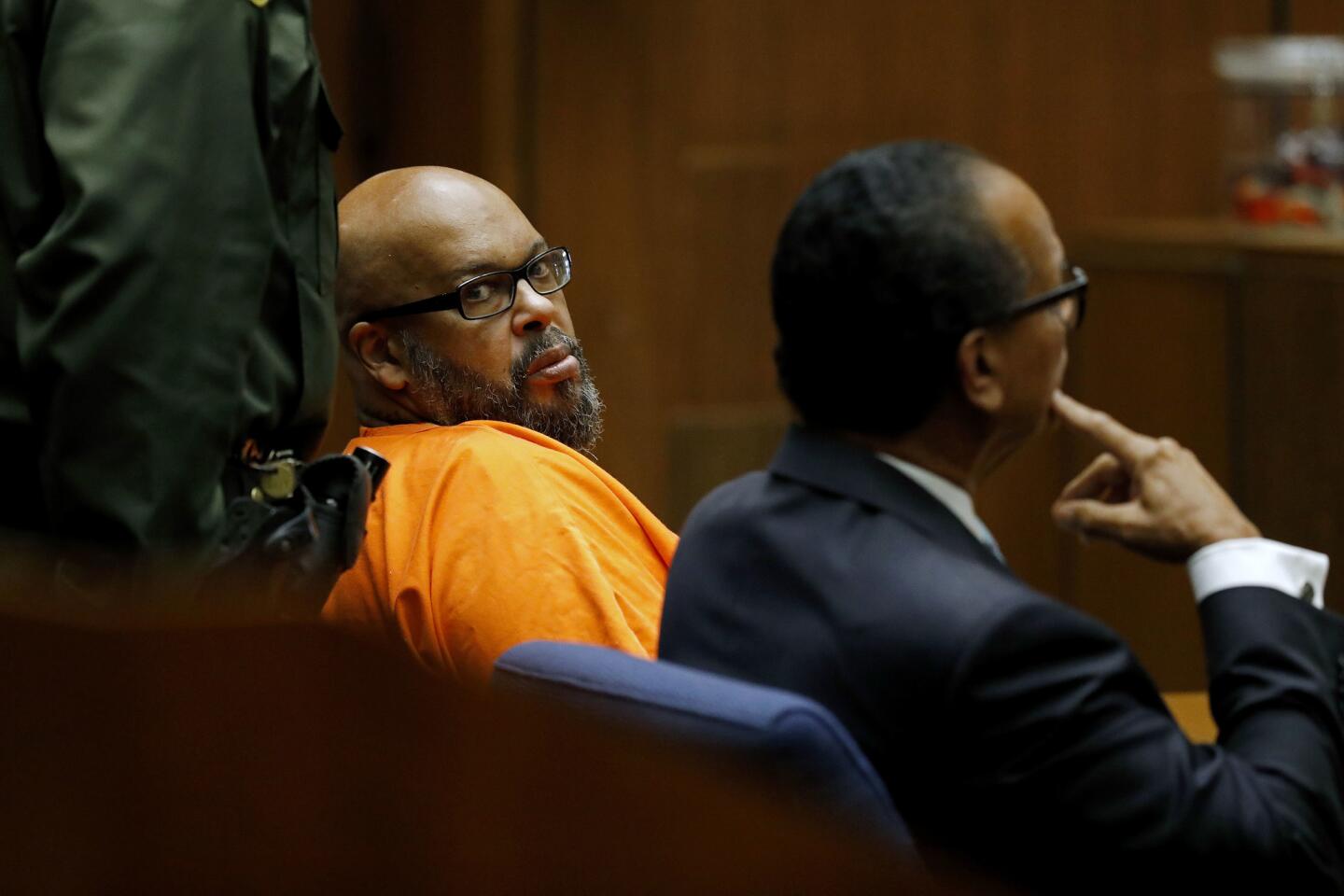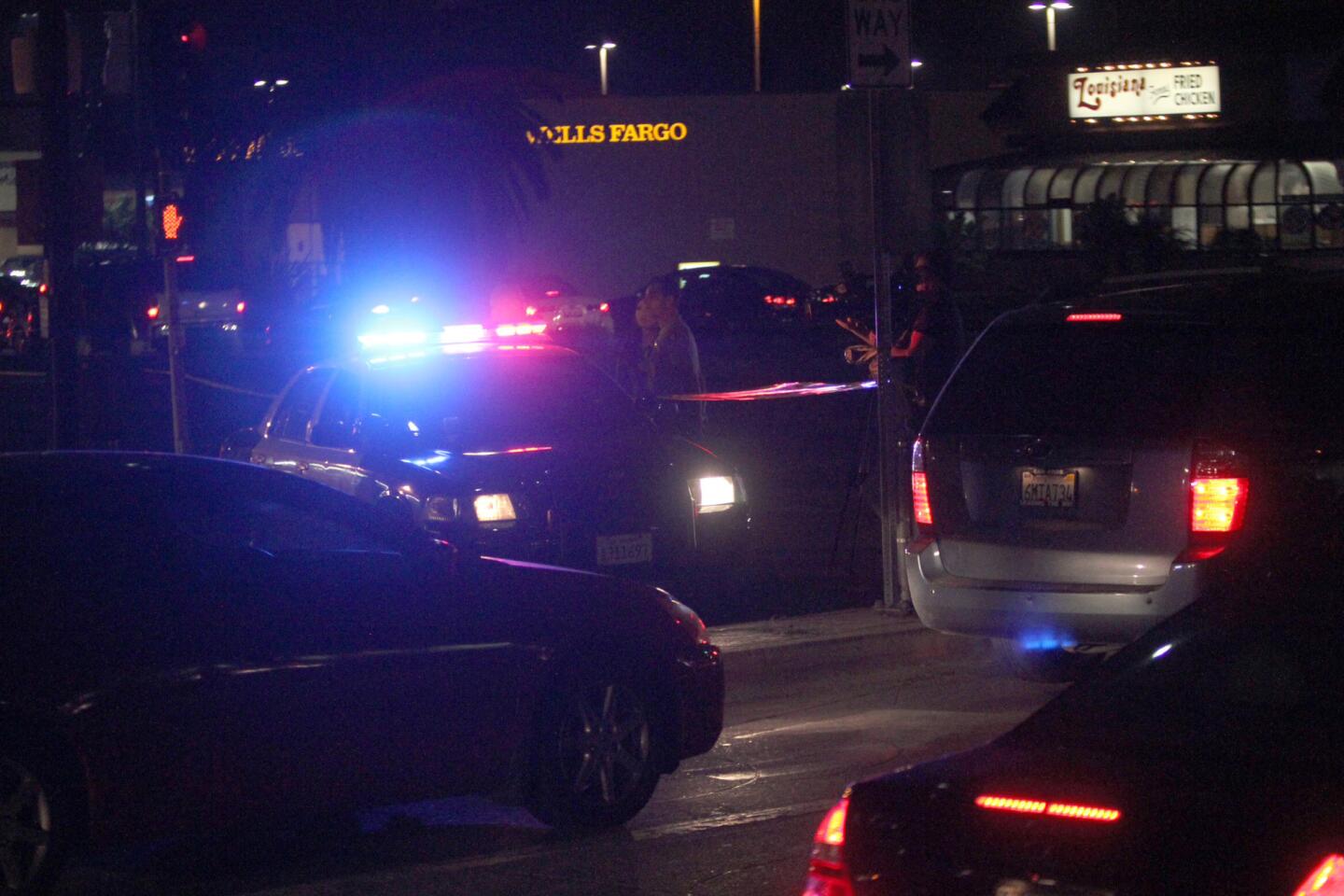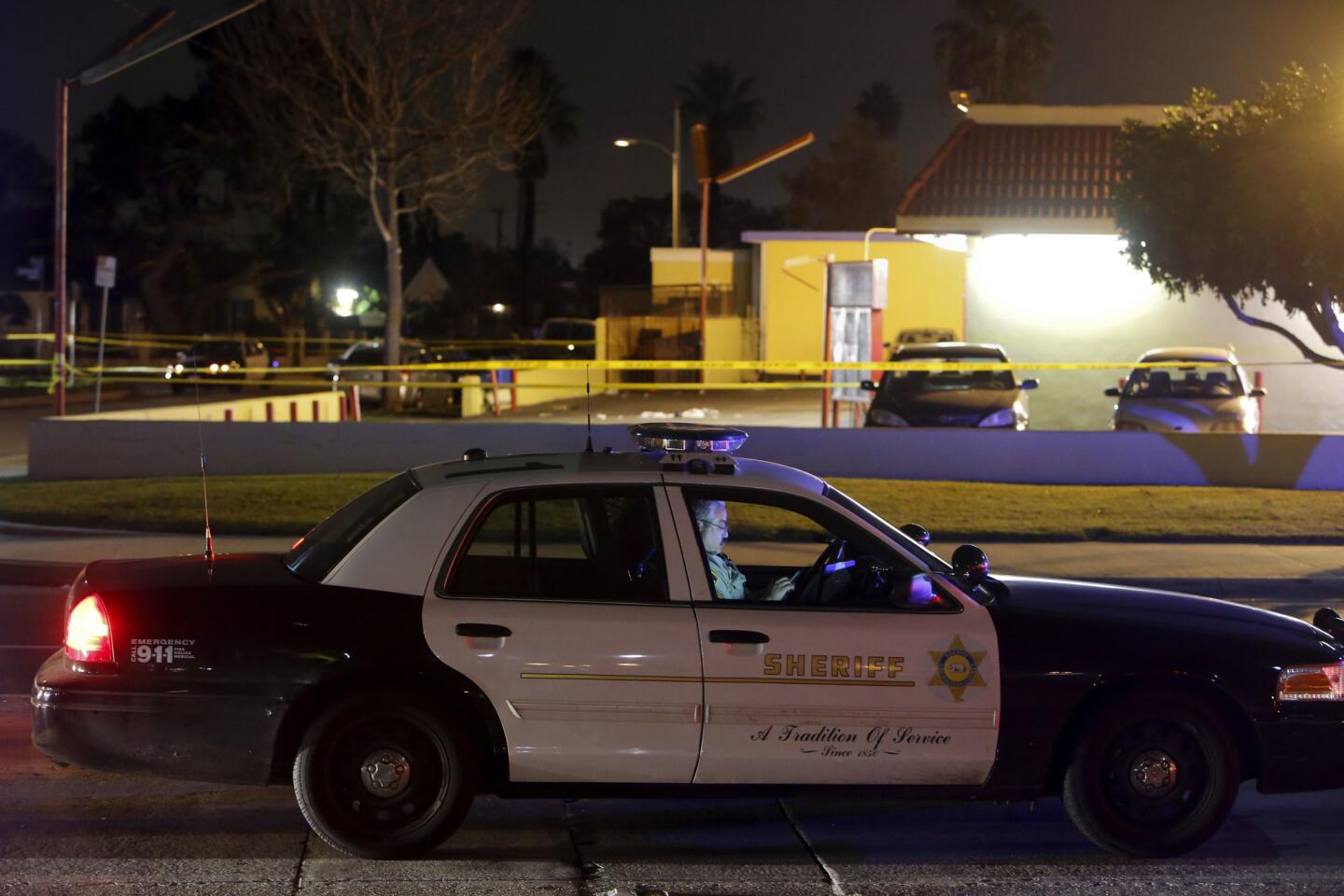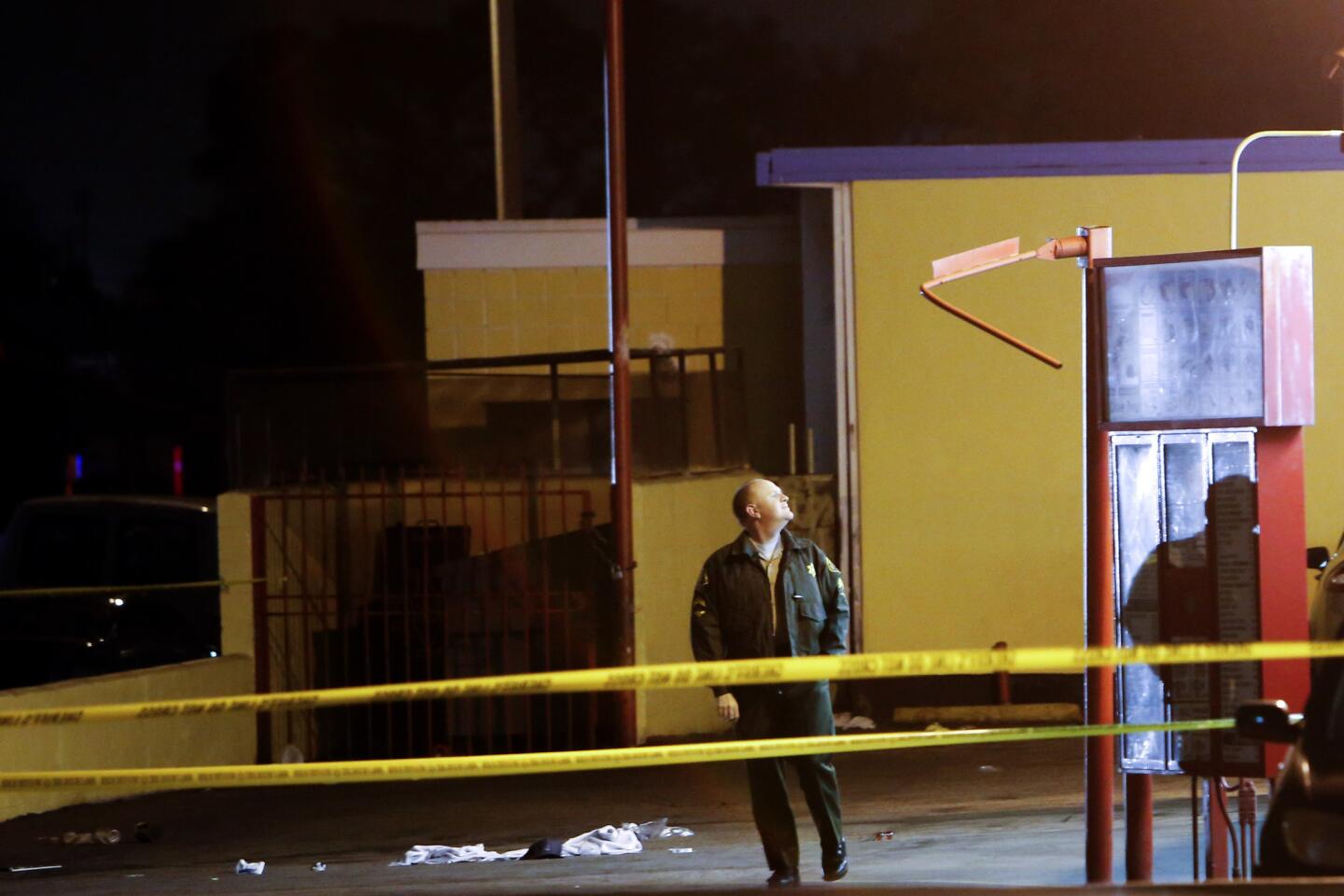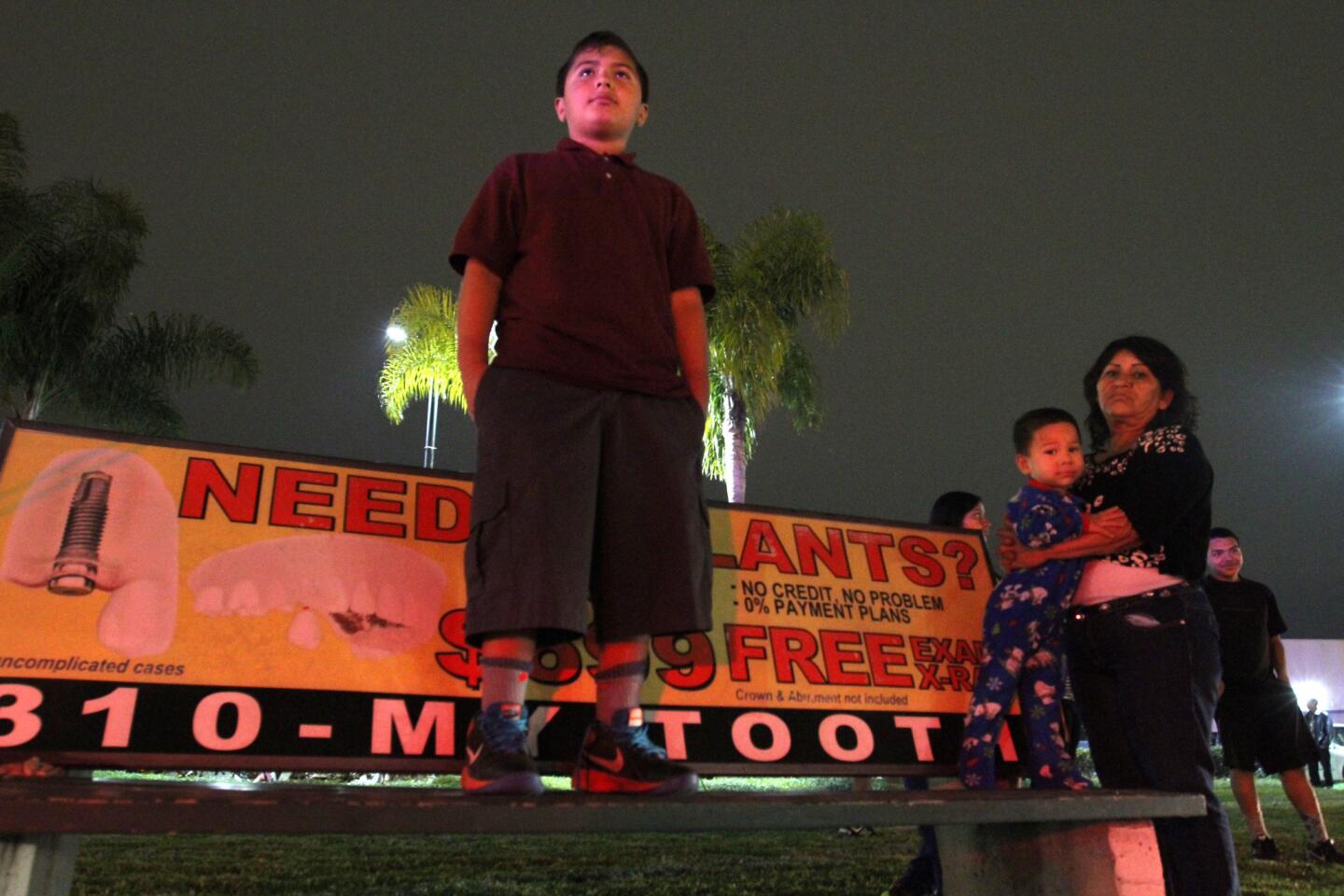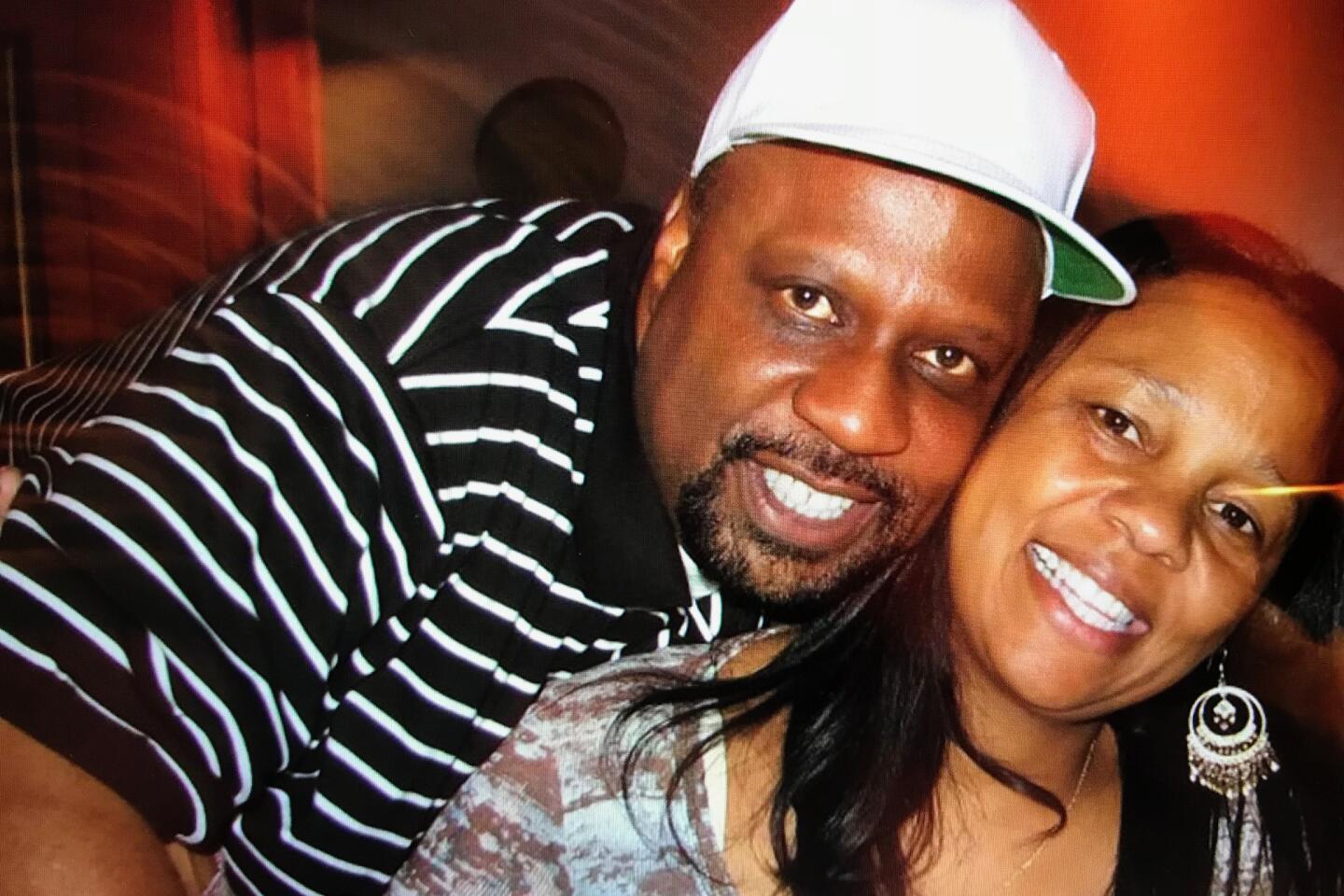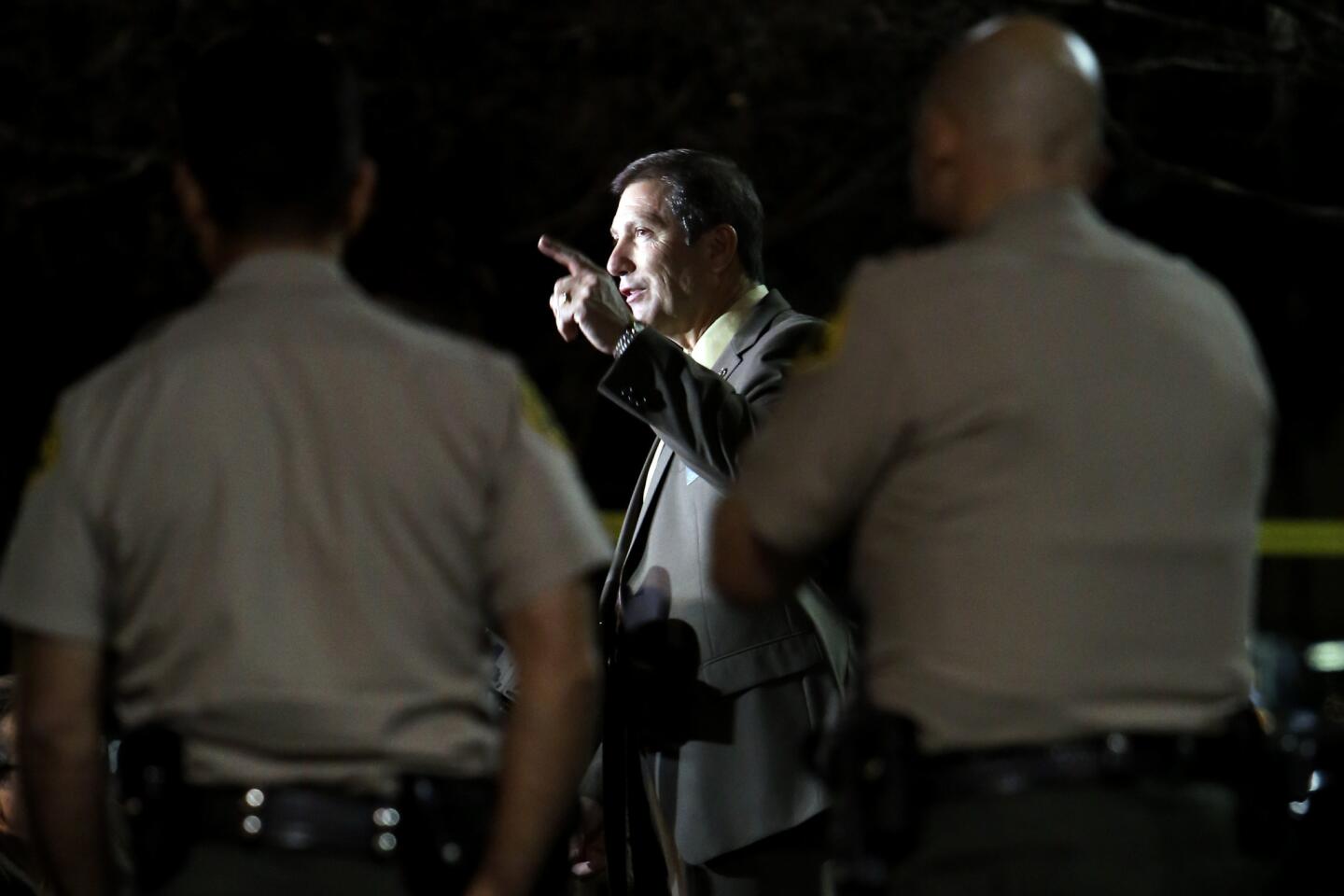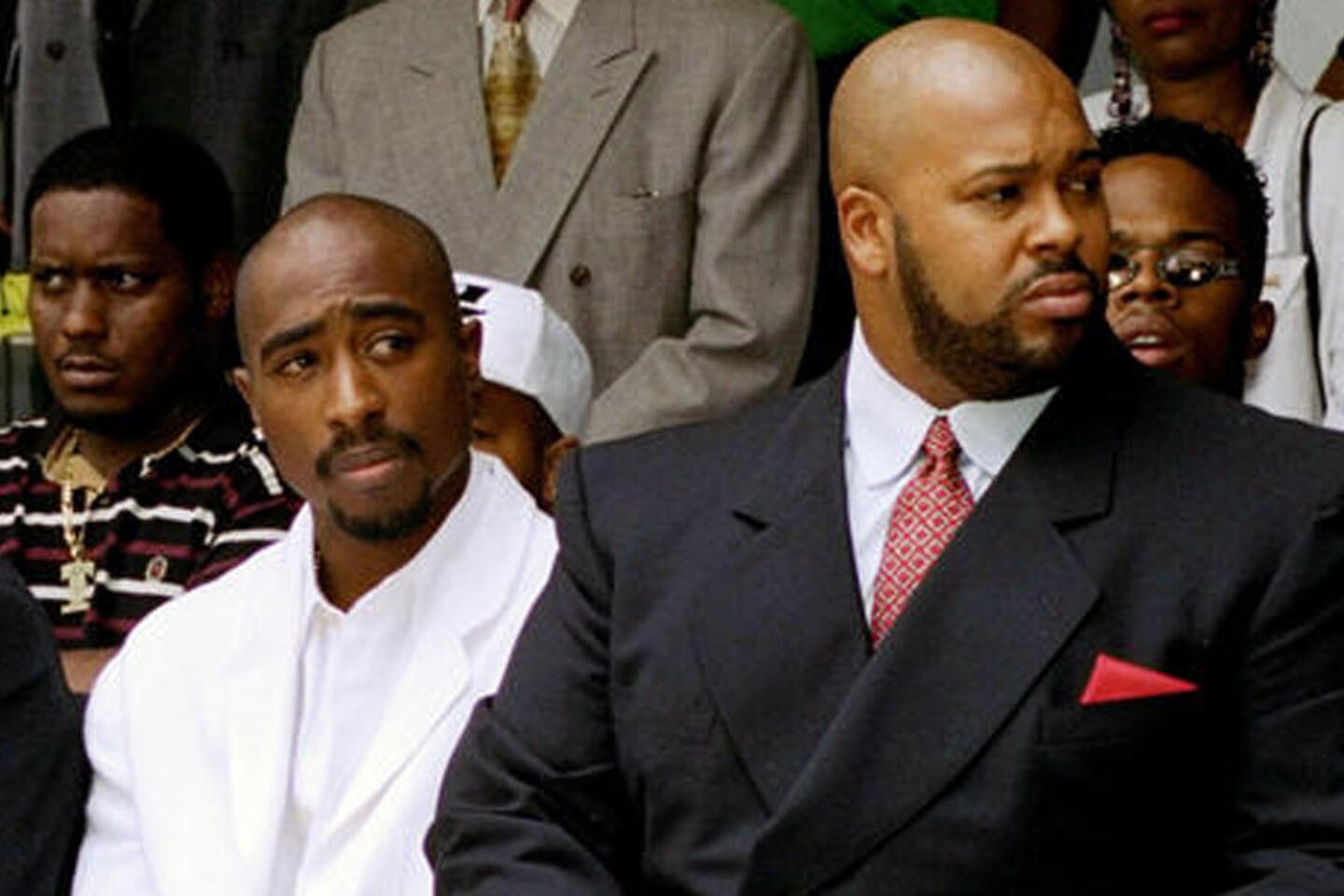Column: Suge Knight, a link who’d lost connection
- Share via
Marion “Suge” Knight and Death Row Records filed for bankruptcy in 2006, long after his numerous legal run-ins had alienated him from most reputable companies and his flagship artists had left. Yet he still made it past velvet ropes.
When Knight got shot in the leg at a Kanye West party in Miami in 2005, the most surprising news was that he’d made it past the doorman. A few years ago at a sold-out Lil Wayne club gig at the Hard Rock Café, the best table in the house was held with a note that read, “Reserved for Suge Knight.” He was most recently shot at a Chris Brown party in August 2014.
Few figures over the past quarter century have cut as haunting a swath across Los Angeles as “Suge” Knight. A film based on the life of the onetime rap impresario, arrested on suspicion of murder in Compton on Thursday for running over a friend, would include so many schemes and scenes of alleged mayhem that they’d stretch Quentin Tarantino’s imagination. Unfortunately, few would involve music, per se.
Knight’s story, though, is thick with crime-life drama, the kind that could sound hot backed by a Snoop-style drawl and Dr. Dre-style beats. Through his work as public face and co-owner of Death Row Records, the onetime NFL player (two games as a replacement player during the 1987 players strike) and bodyguard for R&B singer Bobby Brown helped foster the rise of supremely successful artist-businessmen Snoop Dogg, Dr. Dre and the late Tupac Shakur, among others.
Along with co-owners (including Dr. Dre), Knight helmed the fast-rising Los Angeles business powerhouse through much of the 1990s and helped push what would come to be known as gangsta rap into the mainstream while connecting talented minds. One example would be the recent purchase of Beats Electronics by Apple; the headphone/streaming service’s cofounders Jimmy Iovine and Dr. Dre first met during those early years, when Death Row signed a distribution deal with Interscope Records.
Formed in 1991 after the demise of N.W.A, the Compton rap group that put put Los Angeles hip hop on the national radar, Death Row hit with its first two releases, Dr. Dre’s “The Chronic” and Snoop Doggy Dogg’s “Doggy Style.” Both went platinum with songs about smoking weed, rolling around South L.A. sipping gin ‘n’ juice and “Rémy Martin and my soda pop.” As the label was ascendent, Snoop was charged with murder. He was exonerated, but the charges further blurred the line between gangsta fact and gangsta fiction — and added to the legend.
It didn’t hurt that Knight was an imposing figure who chomped cigars and exuded power like a gangsta mogul. He moved from bouncer to door man to music manager within a few years.
When Death Row artist Tupac Shakur released his 1996 classic, “All Eyez on Me,” through Death Row, the label’s power was reconfirmed. Knight and his investors earned millions while enduring the wrath of politicians and activists such as C. Delores Tucker, who condemned Death Row’s violent lyrical messages. At its peak success, the company held offices in the same Mid-Wilshire neighborhood where some of the city’s most established entertainment resided. But Knight couldn’t avoid gangster-style trouble.
In September 1996, Knight was riding with Shakur when the superstar was murdered in a drive-by shooting in Las Vegas. The artist’s death is still unsolved. Less than a year later near the intersection of Wilshire and Fairfax, rapper Christopher “Notorious B.I.G.” Wallace of rival record label Bad Boy Records was murdered. Knight has repeatedly denied any involvement with Wallace’s death, which is also unsolved. The dueling murders have become a central narrative in hip-hop’s history, one reason why Knight remains a public figure.
Knight has remained on guest lists due to Death Row’s influence. For a whole generation of rappers, “The Chronic,” “Doggy Style” and “All Eyez on Me” are sacred texts. West Coast odes for an under-represented population, the voices remained buried until N.W.A and its offspring started documenting the sound of the streets. Without that work, it’s tough to imagine hip hop as it exists in 2015.
That sound is woven through the work of Death Row’s most obvious musical inheritor, Top Dawg Entertainment. Home to artists including Kendrick Lamar, Schoolboy Q and Ab-Soul, the label sprung from the same area, Compton, that birthed Death Row. Like Death Row, Top Dawg couples stories of the street with relaxed, marijuana-induced tracks that groove, spreading a message of California cool that still vibes today.
As at Death Row under Knight, Top Dawg artists address the nuanced struggles of South Los Angeles life, channeling anger and frustration through narratives that typify the best creative instincts. Unfortunately, Knight’s arrest is a reminder of a city dense with cautionary tales, as well.
More to Read
The biggest entertainment stories
Get our big stories about Hollywood, film, television, music, arts, culture and more right in your inbox as soon as they publish.
You may occasionally receive promotional content from the Los Angeles Times.
